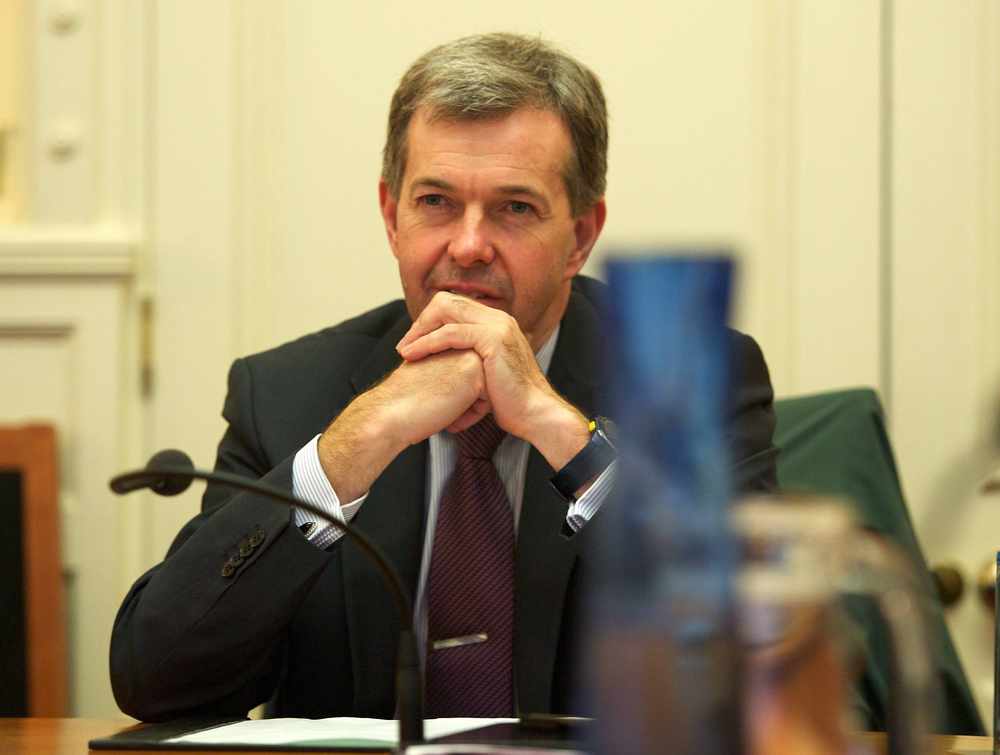The States is due to debate the Medium Term Financial Plan for 2016 to 2019 next week, but in a damning review of the plan published today, the Corporate Services panel say that there is not enough detail beyond 2016 to enable politicians to vote with any confidence.
They suggest that Members should vote on the proposals for next year only, and wait until more details are available before committing to the proposed £2.9 billion income forecasts and £3.1 billion of expenditure.
The proposals include new user-pays charges for liquid waste and health in order to raise an extra £45m a year towards States income. Corporate Services say that Islanders are already paying for sewage disposal in general taxes, and that any additional health charge would be a new form of taxation.
They suggest that if an extra £10m is raised from sewage charges and £35m from a new health charge, as the ministers propose, the average extra cost to each of the 43,300 Jersey households will amount to £1,039 a year.


The panel members are particularly concerned that there have been no impact studies of the effect of these extra costs on Island residents or tax income, nor on £70m of cuts to the public sector workforce that are also proposed in the plan. They say that there has been insufficient consultation with the unions – who will be staging a protest rally tomorrow.
Panel chairman John Le Fondré said: ‘The States are being asked to approve £3.1 billion of expenditure over four years – that is not a small sum. At the end of the day, there is only detailed information for one year. So what we are saying to the Council of Ministers is sort out your plans for 2017 to 2019 and then come back next June with a consolidated proper plan.’
In reaching their conclusions, the panel obtained advice from the Chartered Institute of Public Finance and Accountancy (CIPFA) – who used a global model of best practice – and consultant Dr Michael Oliver. Specifically, the advisers warn that in order to balance the States books by 2019, income will need to be aligned with expenditure. They also say that the whole aim of a four-year plan has been undermined by the lack of detail from 2017 onwards and that proposals to use the ‘rainy day fund’ for core expenditure is a short-term solution.
Other main concerns include:
- Highly ambitious savings targets
- A cultural acceptance that the targets may not be achieved
- A theme of poor financial management within the public sector.
- They are recommending that in the absence of adequate detail, States Members should only approve expenditure and income for 2016 at this time.
THE Council of Ministers have been criticised for allegedly failing to discuss proposed public sector cuts with union representatives before unveiling their savings plan.
As part of the Medium Term Financial Plan, ministers have announced a programme of £70 million of staff savings through voluntary and compulsory redundancies and a public sector pay freeze to help plug a predicted £145 million financial shortfall by 2019.

However, the Jersey Unions Council, which is made up of the Island’s workers’ unions, is arguing that the austerity measures are not the only way to make the States workforce more efficient and have criticised the States Employment Board and the government’s chief officers for failing to properly consult them on the plans.
Yesterday, the JUC held a briefing for States Members at St Paul’s Centre, which was attended by about 20 politicians, to discuss its views on the proposed cuts and urged Members to reject the MTFP during the debate next week.
The meeting was held ahead of a mass union rally due to take place in St Helier on Saturday.
The JUC have already delivered a presentation to the States Employment Board, but Marina Mauger, of teacher’s union the NASUWT, said that the opinions put forward by the unions were met with a ‘thanks, but no thanks’.
‘The unions are concerned that the policies have not been thought through and the States have not disclosed impact assessments of the proposed cuts.
‘We need a more intelligent and wider ranging debate.’
Alan Kearney, head of the Prison Officers Association, added that there had been very little dialogue between the SEB and the unions and that the relationship with the States chief officers had broken down and that ‘the trust has gone’.
St John Constable Chris Taylor expressed his concerns at the lack of meetings and said ‘you can’t run a business without bringing your staff along with you’.
Speaking after the briefing, Treasury Minister Alan Maclean, said: ‘There are clearly areas where the unions feel that we are not listening to them in the way that they would like.
‘Obviously the proposals are difficult and £70 million is in staff savings such as voluntary redundancy, compulsory redundancies and pay restraint. We are aware that behind those savings are real people and is a difficult issue for families.






